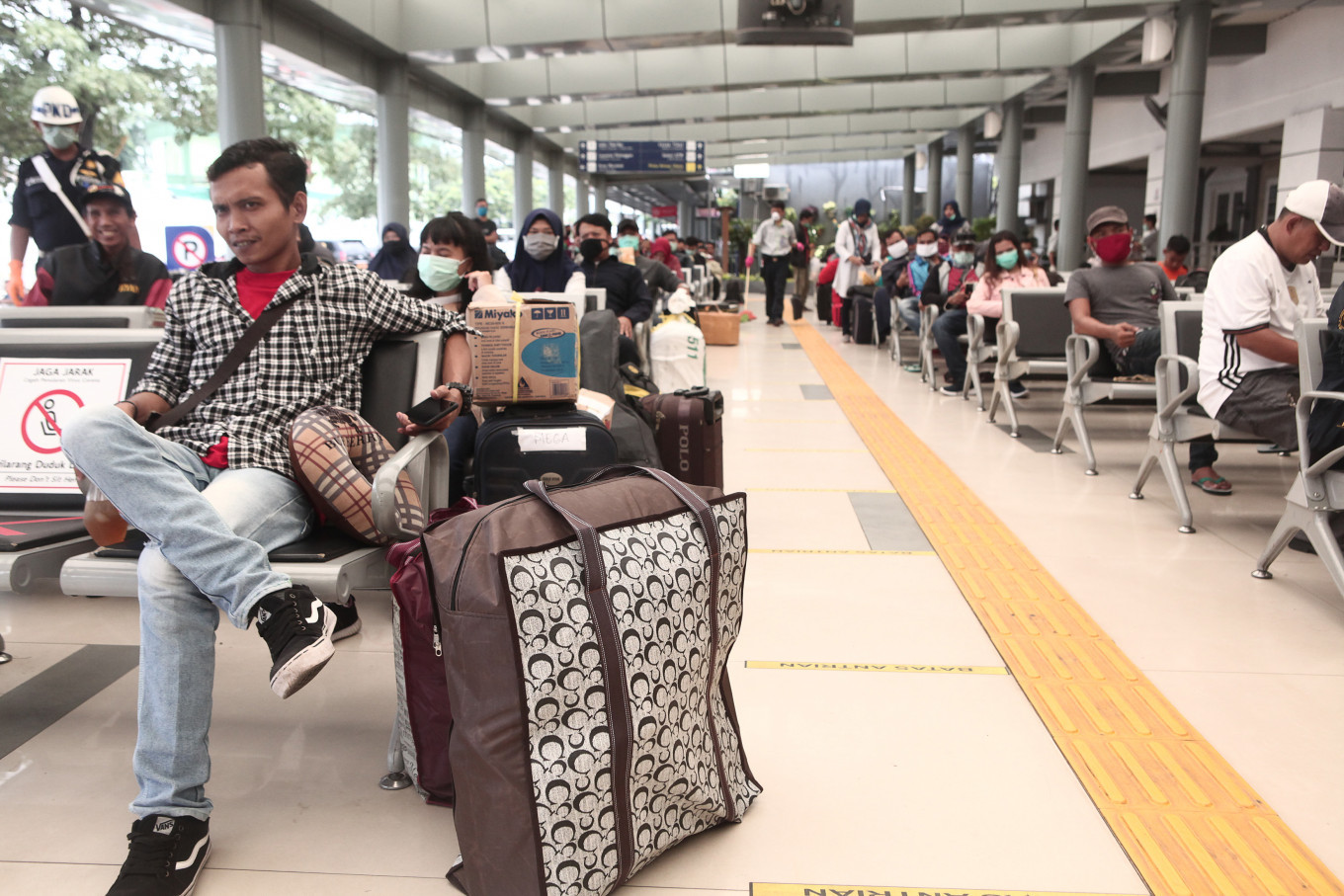Popular Reads
Top Results
Can't find what you're looking for?
View all search resultsPopular Reads
Top Results
Can't find what you're looking for?
View all search resultsKeep a distance: Learning from COVID-19 outbreak at Chinese mall
Crowded public transportation stations indicate that the government’s instruction is still not being followed by many Indonesians.
Change text size
Gift Premium Articles
to Anyone
A
s the number of COVID-19 cases was increasing throughout Indonesia, President Joko “Jokowi” Widodo finally announced large-scale social restrictions to limit the spread of the disease. Yet crowded public transportation stations indicate that the government’s instruction is still not being followed by many Indonesians.
A report published in the journal Emerging Infectious Diseases by scientists from China and the United States about an outbreak of COVID-19 at a shopping mall in Wenzhou, China, serves as a good example for the importance of physical distancing.
On Jan. 20, a 23-year old man (patient 1), who was working at a mall in Wenzhou, sought medical care at a local hospital after 11 days of fever and headache. One day later, he and one of his coworkers (patient 2) were confirmed COVID-19 positive. The Wenzhou Center for Disease Control and Prevention traced and tested their acquaintances, and by Jan. 28, five people (patients 3 to 7) from the same office on the 7th floor of the mall also tested positive.
Patient 3, a coworker of patients 1 and 2, was the only positive patient who indicated that she had a travel history connecting her to Wuhan, China. She had returned from Wuhan one month before she was diagnosed with COVID-19. She had a fever on Jan. 15 and 16 but recovered without any treatment.
Seven staff members from different floors and 10 mall customers also tested positive for COVID-19 after additional tracing by the officials. Close contacts associated with these positive cases were also traced, of which 11 people confirmed positive for COVID-19.
The mall has eight floors above ground and several basement levels. Except for the staff who had been on floor 7, all other patients denied direct contact with other case patients. While infections from other sources cannot be ruled out, most had reported early symptom onset in a narrow time frame. This suggests they became infected at around the same time.
The researchers could not find convincing evidence of definitive transmission routes in the building. Patients 1 to 7 worked in the same room on the 7th floor, but the other positive staff members who had been on other floors of the mall denied any direct contact with the case patients from floor 7.
However, they shared common building facilities (e.g. toilets and elevators), which could have been contaminated by the virus. In addition, the staff members from floor 7 visited shops on the other floors daily.
In total, 34 additional COVID-19 cases were identified beside patient 1 in this particular outbreak. A swift response is crucial to prevent the spread of infection, as this report shows. The local government shut down the mall on Jan. 22, just two days after the first patient had sought treatment. If not, more people would have been at risk of infection, either through direct or indirect transmission of the virus.
This outbreak shows the importance of avoiding public places during a pandemic such as COVID-19. Social distancing is most effective when all citizens in an outbreak area limit their movement and only go out for urgent matters, such as to buy groceries.
This is important, since it is known that infected persons without symptoms (asymptomatic patients) can spread Severe Acute Respiratory Syndrome coronavirus 2 (SARS-CoV-2), the virus causing COVID-19.
Moreover, many objects can be polluted with the virus either through respiratory droplets or the contaminated hands of infected people.
Even though the government has decided on large-scale social restrictions, it remains crucial for authorities to reach, inform and educate citizens continuously on the importance of social or physical distancing.
We should learn from other countries that failure to act fast and enact swift measures will overwhelm the healthcare system, leading to an increased death toll, as we have seen in Italy and Iran.
______
Physician and PhD candidate at the Department of Viroscience, Eramus Medical Center, Rotterdam









